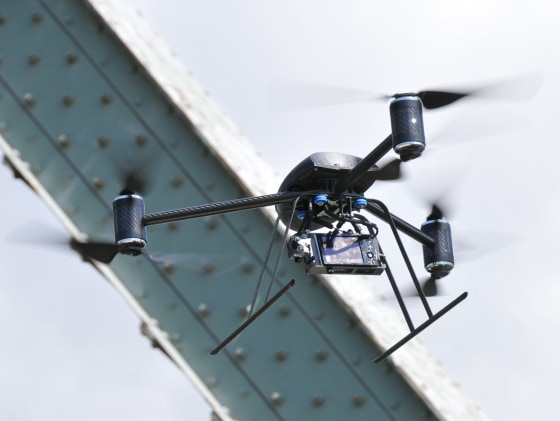Times are changing and the drones are coming. That was New York's Mayor Bloomberg message in an interview with WOR 710 last Friday. And regulating privacy, he added, would be a tricky, slow process.
When asked if drone use by the NYPD would be a good idea, Bloomberg replied, "It's not a question of whether I think it's good or bad. I just don't see how you could stop that because we're going to have them."
Bloomberg also said that privacy concerns about being recorded weren't especially a drone problem. People may be worried about drones flying into their backyard and peering into their bedroom window, but Peeping Tom legislation could cover sneaking peekers who did or didn't use a drone, he said.
Still, "now it's going to be much more serious," he said, adding that drones would let people watch for longer, continuously, with perhaps less detection.
Cameras mounted on buildings that have facial recognition capability, for example, needn't be lofted on a flying drone to be a privacy concern, Ryan Calo, an associate professor of law at the University of Washington explained to NBC News. Calo has said that drones are highlighting gaps in privacy policy that include other kinds of modern technology as well. To drive home his point, he sometimes refers to drones as "flying smartphones."
The FAA has been asked by Congress to make it easier for police departments and private individuals to get permits to fly drones by 2015. Privacy advocates and drone makers are divided over how exactly to regulate drone use, but they all agree that privacy laws in general could do with an update.
"Everyone wants their privacy," Bloomberg told WOR 710's John Gambling. "This is something that society needs to think about. And not by writing a quick piece of legislation — these are long-term serious problems."
Nidhi Subbaraman writes about technology and science. Follow her on Twitter and Google+.
